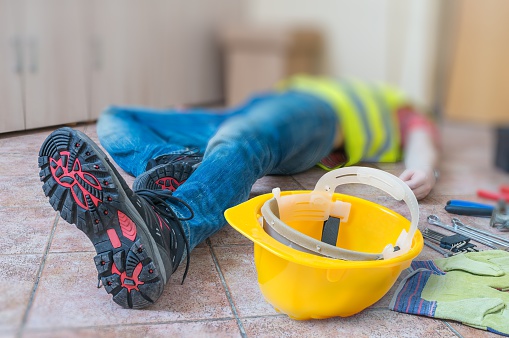Can I collect workers’ comp for a cumulative workplace injury?

Not all workplace injuries involve throwing out your back while lifting something heavy or sustaining a severe injury due to an accident.
Some workplace injuries take much longer to develop, and they’re not usually caused by accidents or careless mistakes. Cumulative trauma injuries can develop from years of performing certain job functions. They can impact the hands, joints, knees, back, spine, feet, shoulders, and neck.
What are some examples of cumulative trauma injuries?
Cumulative trauma injuries are prevalent in all types of workplaces and industries. Here are some varying examples regarding how they develop:
- A manufacturing worker can develop musculoskeletal injuries after years of performing the same physical movements for several hours per day.
- A construction worker may develop vibration-related injuries or arthritis due to hours of operating power tools.
- An office worker may develop low back pain due to several hours of sitting and poor workplace ergonomics.
Muscle fatigue, lack of rest, poor posture, awkward positioning, and overexertion are contributing factors that can speed up the development of cumulative injuries.
What are common types of cumulative injuries?
A cumulative injury can impact a worker’s ability to perform his or her job just as much as an accident-related injury.
The most common types of cumulative injuries, according to verywellhealth, include:
- Carpal tunnel syndrome — compression of the median nerve in the wrist that results in pain, numbness, and tingling in the hands and arms.
- Bursitis — inflammation of the fluid-filled sacs (bursae) in the joints that results in pain, swelling, and stiffness.
- Tendinitis — inflammation of the tendons that causes pain, stiffness, and restricted movement.
- Epicondylitis (tennis elbow) — pain in the elbow, usually caused by overuse of the arms and wrists.
- Ganglion cyst — a small fluid-filled sac that develops over a joint or tendon.
- Tenosynovitis — inflammation of the tendon sheath where tendons and muscles meet, resulting in pain, swelling, and limited movement.
- Trigger finger — a finger gets stuck in a bent position, with a clicking or popping sensation.
Musculoskeletal disorders that result in back pain, tenderness in the shoulders and neck, and discomfort in the limbs are also common cumulative injuries.
How can I collect workers’ compensation benefits?
If you have noticed pain and discomfort caused by the nature of your job, it’s important that you take it seriously before it gets worse. You should first notify your employer and make an appointment to see a doctor.
Your condition may require physical therapy, medication for pain and inflammation, chiropractic care, stretching, exercise, and time off from work.
An experienced Massachusetts and Rhode Island workers’ compensation attorney at the Law Offices of Deborah G. Kohl can help you get the benefits you need. Our attorneys know how the workers’ compensation system works and can help maximize your chances of being compensated.
Contact us online to 508-677-4900 to find out how.

